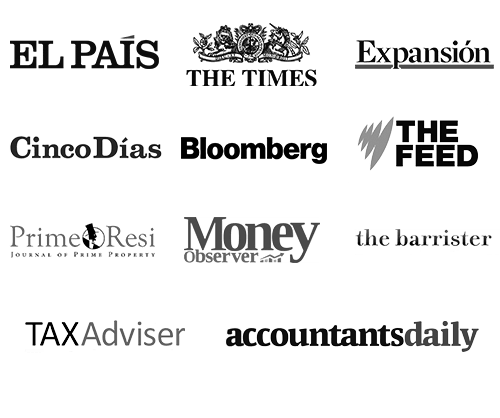Intellectual Property: tax issues in creating, holding and disposing of IP. Dealing with the tax situation for your intellectual property (IP) can be complicated. Governments often apply tax benefits to IP to encourage development and innovation. With the creation and ownership of IP increasing faster than ever, it is worth understanding the benefits available and the key considerations in dealing with IP and tax.
IP and tax for companies
Tax relief for IP generally falls into two categories, either tax incentives for research and development or lower taxation on income from IP.
In the UK, when a company incurs expenditure creating IP, that expenditure is taken into account for tax purposes at the time that it is included in the profit and loss account. This means that the cost of creating IP is included as a deduction in the profit and loss account when the expenditure occurs and a tax deduction should then follow.
Alternatively, the expenditure could be treated as capital expenditure where the IP created is used to generate income. Where the expenditure is considered to be capital, it can be amortised in the profit and loss account over the life of the IP asset.
Small and medium-sized companies can claim tax relief of the usual 100% plus enhanced relief of a further 130% of the expenditure incurred in the research and development of IP, for a total of 230%.
If the company shows a loss in its accounts once this relief has been deducted, then some or all of the loss relating to the IP development can be surrendered to HM Revenue & Customs in return for a cash payment, referred to as a payable research and development tax credit. The current level of payment is 14.5% of the enhanced expenditure, capped at three times the PAYE and NIC liability. This can be a helpful option for new businesses with limited cash flow. For more established businesses, it may not be the right option as the cash payment will be less than the amount of tax that would be saved if it is set against future tax liabilities, so it is advisable to take expert advice as to the best option for your situation.
IP and tax for individuals
Where costs are incurred in respect of IP by an individual, it must be shown that this expenditure is wholly on behalf of a business before a tax deduction can be applied.
Where the individual is carrying on a trade, a deduction can be made for research and development expenditure and for any costs involved in registering IP, such as registering patents.
Tax issues when acquiring IP
Where IP is purchased, tax relief on the cost is dealt with by way of amortisation. The basis for calculating the amortisation will be either using the business’s standard accounting practice or by the business electing a fixed rate. HMRC will generally accept accounts that have been prepared using the UK Generally Accepted Accounting Practice or International Accounting Standards.
If amortisation is not used, then a tax deduction could still be made under statutory provisions, including s.730 of the Corporation Tax Act 2009.
Tax issues when acquiring an IP licence
Tax deductions vary if a licence to use IP is acquired, rather than the outright purchase of the IP. Generally, the tax deduction is made when the royalty payments are made and included in the company accounts.
It should be noted however that if the payment made to the IP provider is a lump sum that allows the purchaser to use the IP as much as it wishes, this could be classed as an acquisition cost, rather than a royalty payment and as such could be amortised.
Tax issues when disposing of IP
Where some or all of the rights attaching to IP are sold and that asset ceases to be included in the company’s balance sheet, then tax will be payable. For UK IP acquired or created after 31 March 2002, Corporation Tax will be payable on the gains made.
Patent box claims
Where patents have been granted by the UK or European patent offices, Corporation Tax relief is available, reducing the rate to 10%. This can include software, which can be patented. The benefit can accrue for up to six years from the date on which the patent is applied for.
The company simply needs an income stream that generates taxable profits that can be attributed to the patent. Details of research and development expenditure should be recorded as the tax reduction is only available where this has taken place in the UK.
Establishing an IP holding company
A company can be created purely to manage your IP. Its role will be licensing your IP rights, enforcing those rights, maintaining registrations and dealing with any infringements. Setting up a separate IP holding company can be useful where international expansion is possible or where franchises might be created.
This keeps the IP-related income separate from the main company’s accounts meaning that it will be taxed separately. You can choose which jurisdiction in which to register your IP company, meaning you have the option to select the most favourable tax regime.
It also means that you can sell the main business but retain the IP company, which will allow you to lease the IP to the new owner of the business in return for royalty payments.
There is also the advantage that the IP is ringfenced away from the main operating company so that if the main business experiences financial difficulties, the IP company will not be liable. The main business could be liquidated without this affecting the IP company.
It should be noted that transferring the IP to a separate company will incur a Corporation Tax charge on disposal by the main company. The IP company will then need to charge the main company a royalty fee for using the IP. The payments for this will be deductible from the main company’s Corporation Tax liabilities.
The separate company must be set up and operated correctly and not merely be a façade to reduce tax liabilities or HM Revenue and Customs are likely to disallow any tax deduction for the royalty payments.
By Mónica Navarro, Chief Legal Counsel (Dublin) at del Canto Chambers
Contact Us
Dealing with IP rights and taxation can be complex and it is important to seek expert advice to ensure that you structure your business in the most tax-efficient way possible and that you avoid any suggestion of incorrect treatment of your IP assets for tax purposes.
Del Canto Chambers is a leading London Chambers with offices in Ireland specialising in tax, international tax and legal affairs, property law, intellectual property and legal advocacy. We can advise you on your options and help you put the right framework in place to safeguard your IP and ensure your tax affairs are clear and properly dealt with.
To make a no-obligation enquiry, please either call us now on:
+44 2070 430648 or Make An Online Enquiry.
We will come back to you within 24 hours, and we will be delighted to help you.





